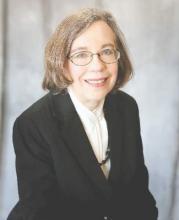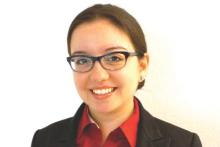“Medical students use copious amounts of federal student loans,” he said. “Somehow the school has to make up that difference. We’ve found partners, but they don’t have infinite capacity, so we have to keep going back and finding new partners each year.”
The University of California, San Francisco, also has opened its doors to DACA students. Now in his third year, Jirayut New Latthivongskorn is UCSF’s first undocumented medical student. His education is financed by grants, private funding, and donations, said Mr. Latthivongskorn who came to the United States from Thailand when he was 9 years old. He is cofounder of Pre-Health Dreamers, a network of undocumented students who plan to pursue medical careers.
Before DACA granted his entry into UCSF, Mr. Latthivongskorn was accustomed to barriers because of his undocumented status, including having to turn down a nearly full-ride scholarship from the University of California, Davis, after high school.
“It was devastating,” Mr. Latthivongskorn said in an interview. “It was one of the very first times where I felt different and thought, ‘This is not going to work. You are undocumented.’”
Mr. Latthivongskorn and his family scraped together money for him to complete his undergraduate degree at the University of California, Berkeley. California has since passed the DREAM Act, a law that allows undocumented immigrants to receive private scholarships funded through public universities.
Not everyone believes undocumented immigrants should get the chance to become U.S. physicians. Dr. Jane M. Orient, executive director of the Association of American Physicians and Surgeons, argued that undocumented immigrants are not the answer to curbing the physician shortage.
“In a country that’s supposed to be ruled by law, it seems incomprehensible that people who are violating the law should be given privileges over people who are here legally,” she said in an interview. “We desperately do need more physicians, but we should not be blocking Americans from having this opportunity.”
Dr. Shirie Leng, a Boston anesthesiologist, said DACA is promising in theory, but falls short in practical application.
“There’s no particular reason why [undocumented students] wouldn’t make great doctors,” said Dr. Leng. “The problem is funding related. You can give kids all the opportunity you want, but if you can’t pay for it, that seems to me to be the biggest sticking point.”
Basing admission policies on programs that are vulnerable could end poorly for schools and students, Dr. Leng added.
If DACA is revoked, “it’s not just a waste of money for the school, but a waste of time for the kids,” she said.
Protections hinge on Supreme Court … and next president
During oral arguments earlier this month, justices appeared to disagree on whether DAPA and expanded DACA were properly executed.
Associate Justice Anthony M. Kennedy indicated that the normal order of government policy making had been “turned upside down,” by the creation of the programs. Associate Justice Sonia Sotomayor, meanwhile, noted that immigration policies with broader reaches have been similarly instituted in the past.
A ruling for the government would mean the president can use his executive power to enact policies that run contrary to immigration laws already in place, said Mr. Hethmon, the D.C. attorney. Current immigration laws trump informal agency discretion and do not allow for the government’s “arbitrary and capricious creation of a massive classification of nonstatus alien beneficiaries,” Mr. Hethmon wrote in his high court brief.
A decision that favors Texas would unravel opportunities for undocumented immigrants and prevent their ability to contribute to society, said Ignacia Rodriguez, a legal fellow at the National Immigration Law Center, which authored a brief in support of the government.
“What’s at stake is providing a stable environment for U.S. citizen children to grow, and providing people with the opportunity and tools to be able to contribute to the workforce [and] to the economy,” she said in an interview. “This is a payoff for everybody, not just those receiving the benefit.”
Regardless of what the Supreme Court decides, the next president could have the last word, according Ashley C. Parrish, a Washington D.C. attorney who cowrote a brief in support of the states. Mr. Parrish takes no position on the merits of the immigration programs, but rather, he is concerned with the administration’s failure to follow the Administrative Procedure Act’s requirements for notice-and-comment rule making.
“If the program were adopted as a legal rule after notice and comment, it could not be changed without going through a new notice-and-comment process,” he said. “If it is just a bare statement of policy, it can be changed at any time, without notice to anyone. The next administration could say, ‘Thank you for coming out of the shadows; we are now going to deport all of you.’ ”



